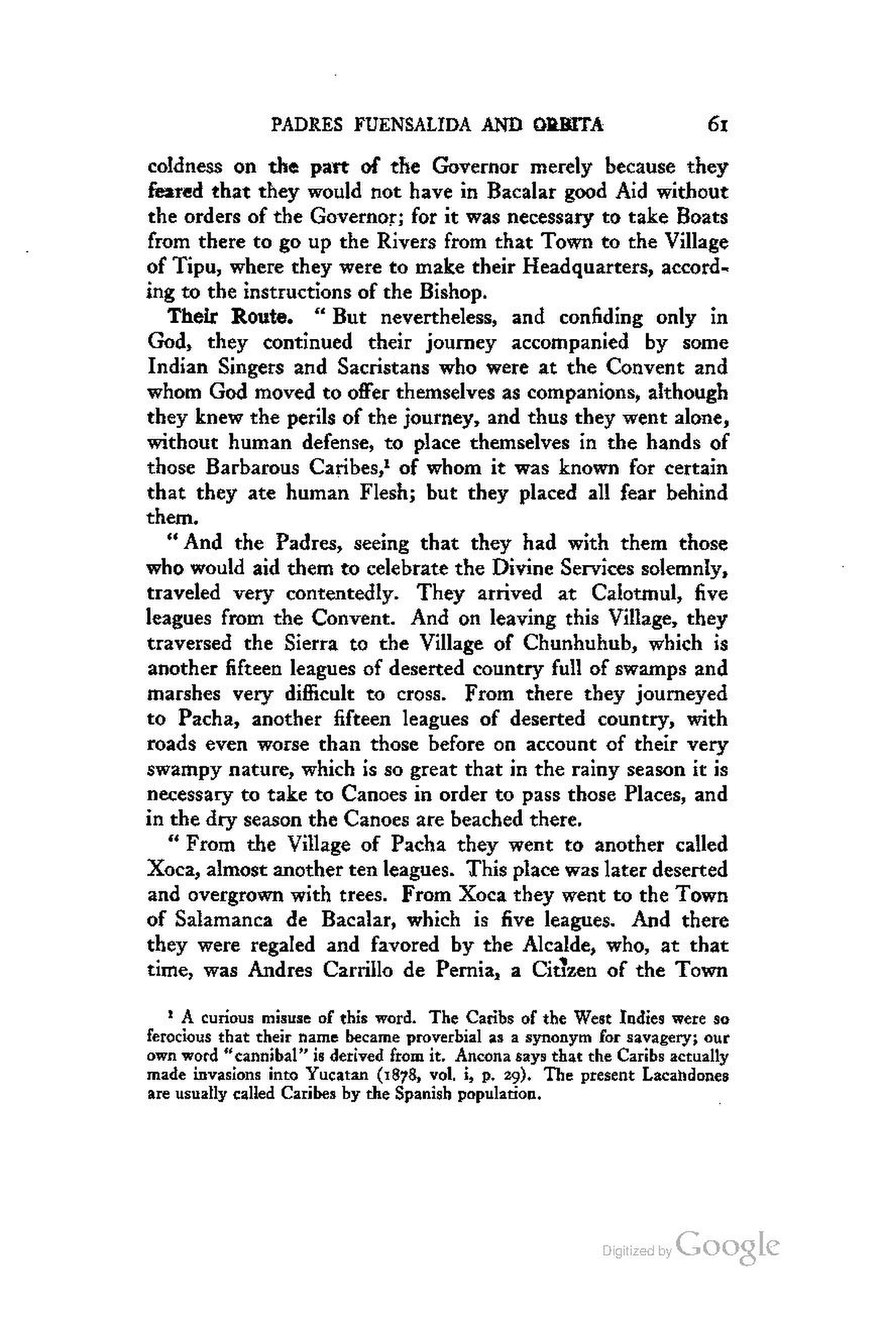coldness on the part of the Governor merely because they feared that they would not have in Bacalar good Aid without the orders of the Governor; for it was necessary to take Boats from there to go up the Rivers from that Town to the Village of Tipu, where they were to make their Headquarters, according to the instructions of the Bishop.
Their Route. “ But nevertheless, and confiding only in God, they continued their journey accompanied by some Indian Singers and Sacristans who were at the Convent and whom God moved to offer themselves as companions, although they knew the perils of the journey, and thus they went alone, without human defense, to place themselves in the hands of those Barbarous Caribes,[1] of whom it was known for certain that they ate human Flesh; but they placed all fear behind them.
“And the Padres, seeing that they had with them those who would aid them to celebrate the Divine Services solemnly, traveled very contentedly. They arrived at Calotmul, five leagues from the Convent. And on leaving this Village, they traversed the Sierra to the Village of Chunhuhub, which is another fifteen leagues of deserted country full of swamps and marshes very difficult to cross. From there they journeyed to Pacha, another fifteen leagues of deserted country, with roads even worse than those before on account of their very swampy nature, which is so great that in the rainy season it is necessary to take to Canoes in order to pass those Places, and in the dry season the Canoes are beached there.
“From the Village of Pacha they went to another called Xoca, almost another ten leagues. This place was later deserted and overgrown with trees. From Xoca they went to the Town of Salamanca de Bacalar, which is five leagues. And there they were regaled and favored by the Alcalde, who, at that time, was Andres Carrillo de Pernia, a Citizen of the Town
- ↑ A curious misuse of this word. The Caribs of the West Indies were so ferocious that their name became proverbial as a synonym for savagery; our own word “cannibal” is derived from it. Ancona says that the Caribs actually made invasions into Yucatan (1878, vol. i, p. 29). The present Lacandones are usually called Caribes by the Spanish population.
